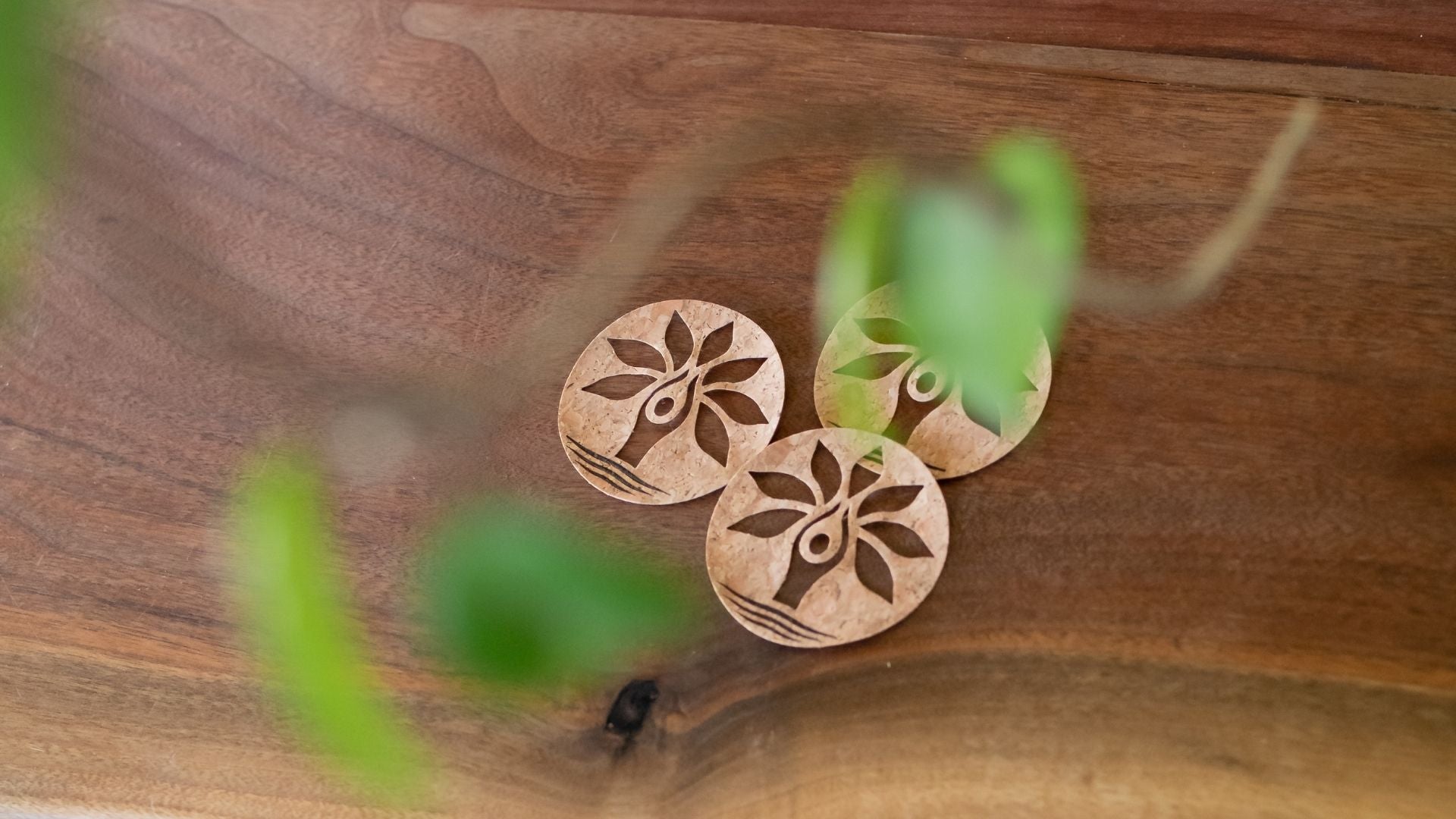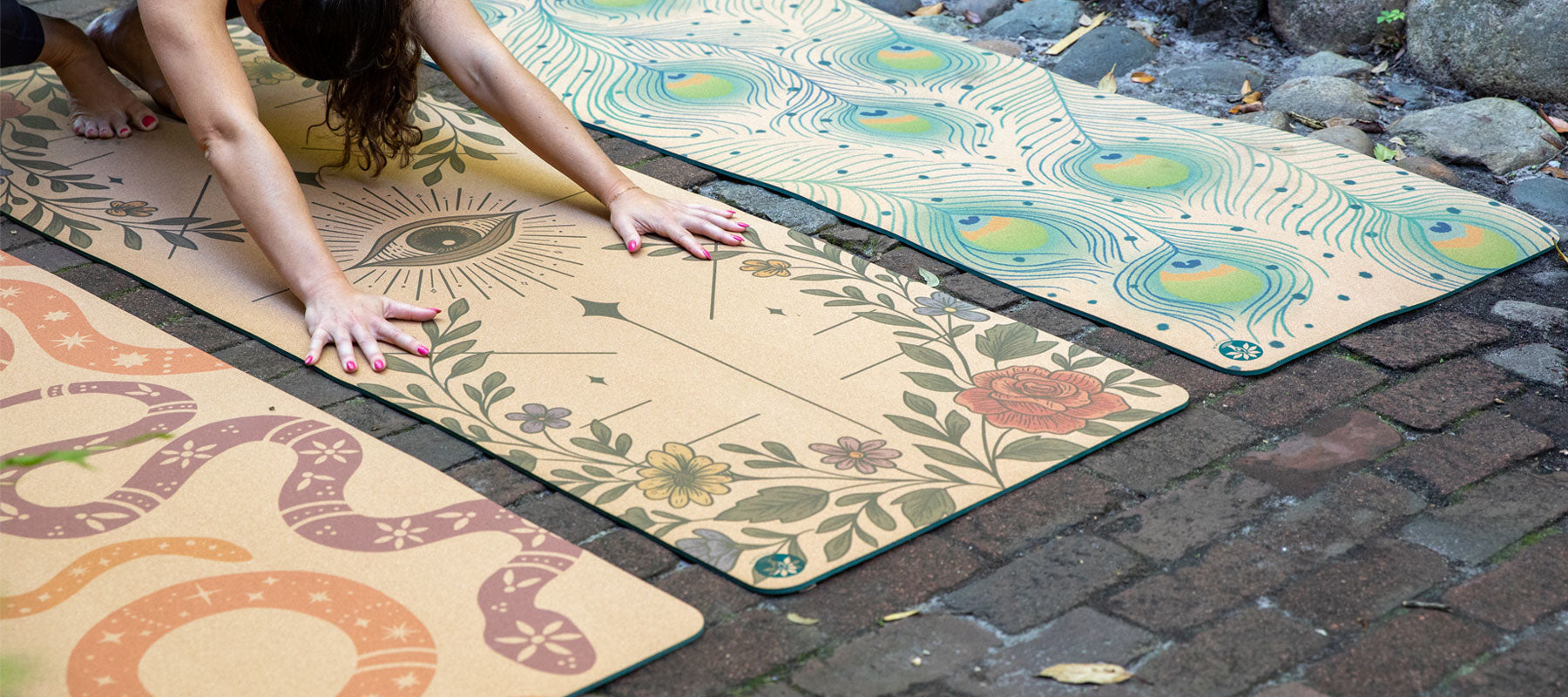Get the inside scoop on our sustainable business practices with Yoloha founder, Chris Willey.
Reinventing Packing Procedures + Quality Control
Our journey began almost 9 years ago when I built the first cork yoga mat out of my garage using cork bonded to recycled rubber. After painstakingly making the first 200 mats by hand, I realized I needed to find a manufacturer with the proper machinery to produce them more efficiently. After trying several yoga mat manufacturers, I was surprised to find the standard way of shipping yoga mats to businesses was to pre-roll the mats and individually wrap each one in plastic. While this makes it easy for businesses receiving the yoga mats to simply throw them into a box and ship out to customers, I was disappointed with the procedure. Not only was this extremely wasteful, I also found that it led to poor quality control since they were rolled up for such a long period of time and we were not able to inspect them ourselves.
Setting out to change this, I worked with the manufacturers to develop packaging that uses 98% less plastic waste. Now, we use mostly recyclable cardboard by having the mats ship flat in the boxes. This not only saves all that plastic but also keeps the mats nice and flat rather than storing them rolled up for months at a time. This also significantly improved the quality of our mats as we are now able to hand inspect each one and roll them up the day they are purchased, so your mat will roll out nice and flat for your first practice.

Product Materials
My discovery of cork came out of my first passion for building surfboards. Using non-traditional materials that were eco-friendly, durable and high performing, I found that cork outlasted and outperformed any other natural material and, best of all, it provided a non-slip surface even when wet, eliminating the need for wax for traction. That’s when a light bulb went off and I realized what else cork could be used for: yoga mats.
The performance aspects of the cork was just icing on the cake. It turns out that harvesting cork is one of the most environmentally friendly processes in the world. Cork comes from cork oak trees located in Mediterranean Europe. When cork is harvested the trees are not cut down, instead their bark is carefully stripped away by hand in a skilled trade that provides thousands of fair wage jobs. Plus, harvested cork oak trees sucks up to five times more carbon dioxide as they begin to grow back their bark in a nine year process. Learn more about cork facts, myths and realities.

More recently, we released Plant Foam, a creation I worked on for years with Hexpol, a lead manufacturer out of Germany with a focus on sustainability. Together, we set out to create a more environmentally efficient foam that would match the performance properties of standard TPE. We wound up combining ethically sourced sugar cane from Brazil (55%) with non-toxic EVA foam (35%) to create Plant Foam.
By combining Plant Foam with our signature cork surface, we achieved a mat made with up to 83% renewable materials certified by the USDA and continue to work towards a mat made with 100% renewable materials.

Waste Reduction + Repurposing Materials
I am a huge advocate of zero waste both in and out of the workspace. Therefore, we repurpose many materials leftover from the creation of our mats to make other products.
No bark is wasted during the cork production process, and the residue is granulated to make other cork products. Even cork dust is used for fuel.
Any imperfect mats we come across in our inspections, we repurpose to make our Try Before You Buy samples or they are donated to non-profit yoga programs and schools as a way of giving back to the community.

Thank You
It has been our mission from day one to not just create and build great products but lead the way in planet friendly business practices. We are so grateful for all of your support.
-Chris Willey
Yoloha Founder


